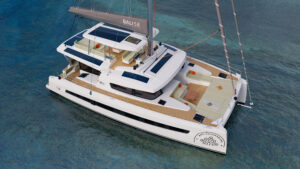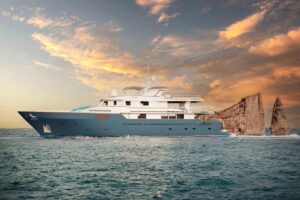Vision Marine unveils ‘unsinkable’ Phantom rotomoulded boat
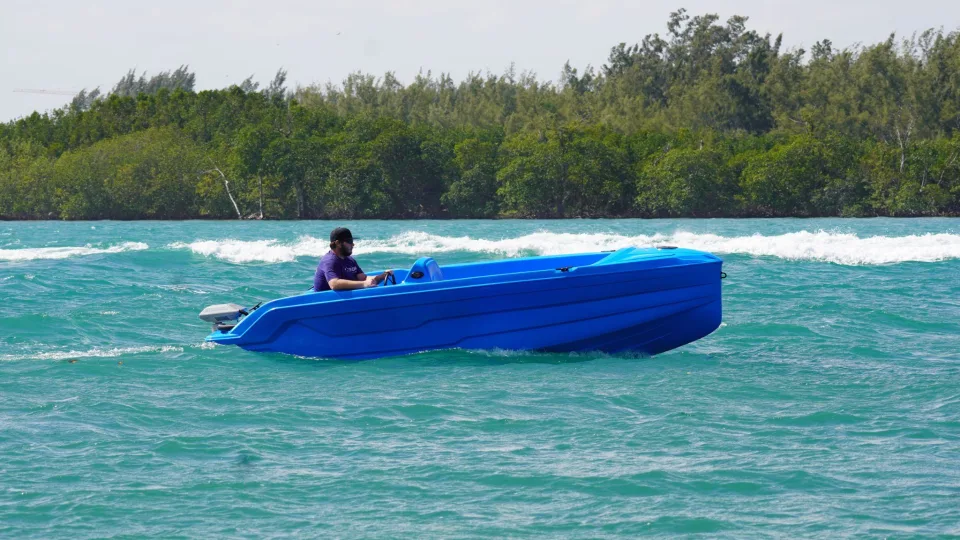
Canada-headquartered electric boatbuilder Vision Marine Technologies has unveiled its new Phantom, a rotomoulded, recyclable boat that the company describes as unsinkable and indestructible.
Vision Marine says the Phantom represents a breakthrough in rotomoulded boat design. Thanks to efficient engineering, Vision Marine says it can produce up to an estimated 300 units annually at a cost that is 70 per cent lower than that of fibreglass alternatives, with potential scalability to 1,500 units per year.
Designed to seat up to 10 passengers comfortably, the Phantom has a high-density polyethylene hull that is both strong and environmentally friendly, capable of being recycled up to nine times. Vision Marine says this distinguishes it from smaller models like Brunswick’s Veer.
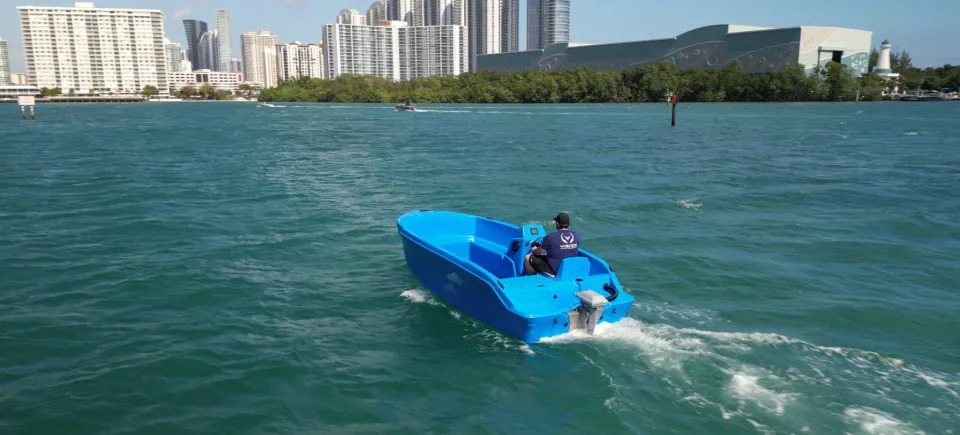
Vision Marine has secured an exclusive distribution agreement with Nautical Ventures Marine Group for Florida, with an initial order of 50 units.
“We recognise a growing demand for rotomoulded boats among our Florida clientele for several reasons,” says Roger Moore, CEO of Nautical Ventures. “[Their] affordability enables entry-level ownership; they support both electric and gas motors, appealing to eco-conscious and traditional boaters alike; and their versatility makes the Phantom ideal for various activities, from fishing to leisure. With its 10-person capacity and maintenance-free design, the Phantom meets a wide range of needs.”
Vision Marine says the Phantom’s versatile design suits it for use as a tender, family boat, fishing vessel, and a choice for boat rental centres worldwide.
The first unit, which went on display at the recent Miami International Boat Show, will be presented to 4Ocean, a global ocean cleanup company.
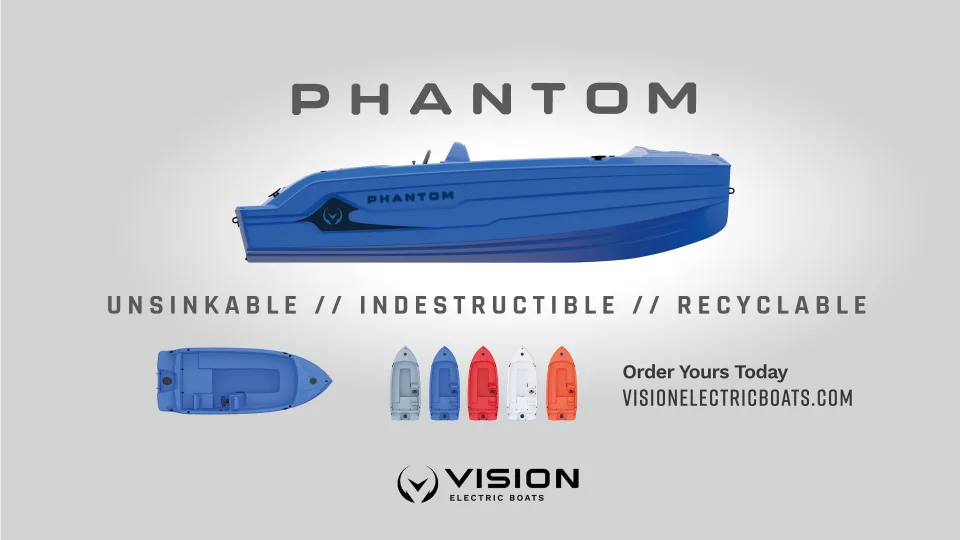
The problem of end-of-life vessels is growing in scale, with a huge wave of boats built in the 60s and 70s currently reaching their natural end, and it’s an issue the industry needs to tackle fast.
Though recycling efforts, alternative materials and innovative technology are promising, establishing and expanding these methods takes significant time. Alternatively, some industry experts believe that if boats are designed to be reused, repaired or remanufactured from the beginning, the industry moves away from trickier end-of-life scenarios.
In 2022, a new programme in Florida was established to tackle the issue of end-of-life boats and reduce the number of derelict vessels along the state’s waterways.
The Florida Fish and Wildlife Conservation Commission (FWC) established the statewide Vessel Turn-In Program (VTIP) as part of the Derelict Vessel Prevention Program. The new rule created a voluntary program to remove at-risk vessels before they become derelict, in an effort to help Florida’s environment and public safety.


